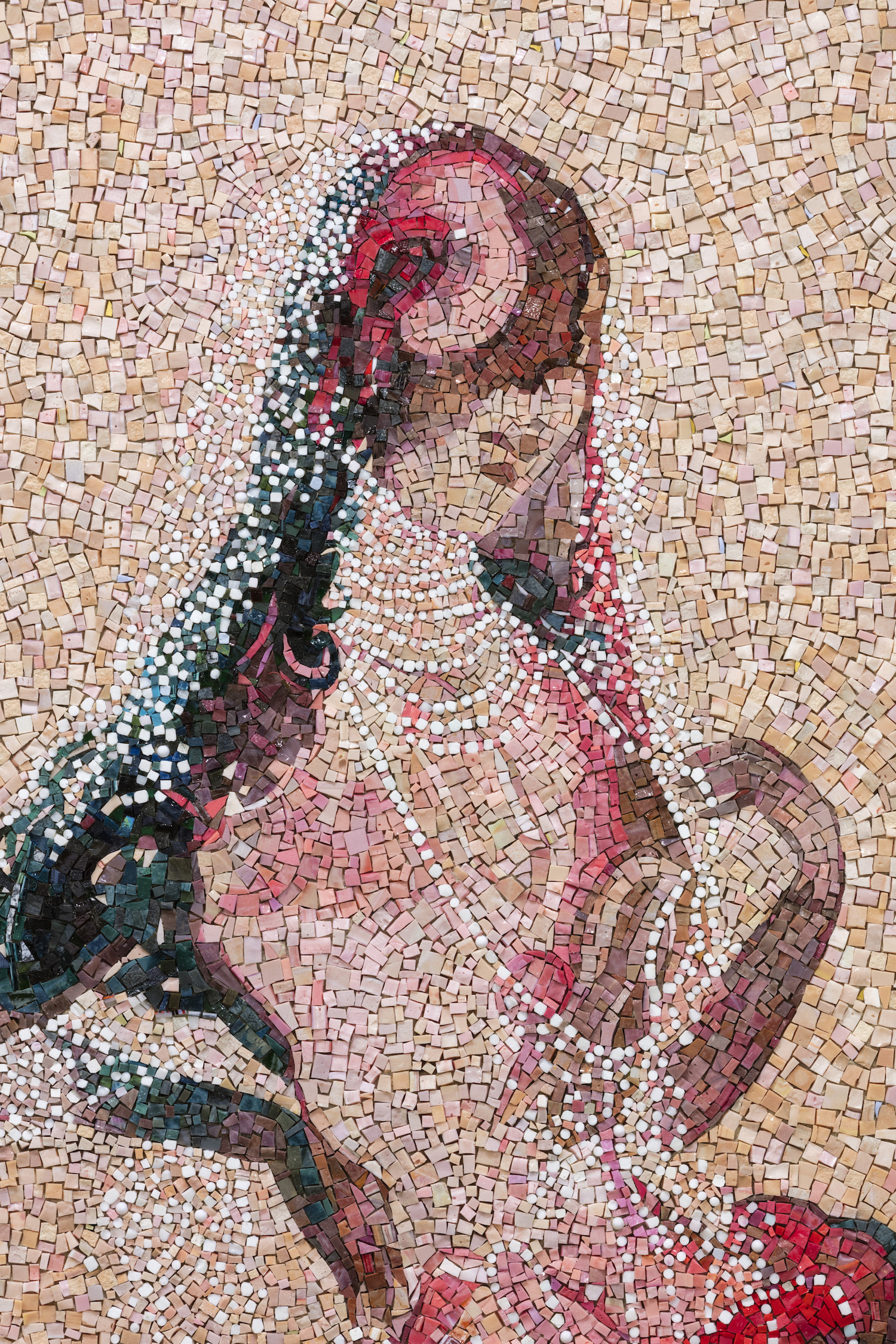Overview
The Morgan Library & Museum, New York City, USA
18 June–21 September 2021
RISD Museum, Rhode Island, USA
12 November 2021–30 January 2022
The Museum of Fine Arts, Houston, USA
20 March–5 June 2022
Shahzia Sikander is internationally celebrated for bringing Indo-Persian miniature-painting traditions into dialogue with contemporary art practice. This exhibition tracks the first fifteen years of this artistic journey, from her groundbreaking deconstruction of miniature painting in Pakistan to the development of a new personal vocabulary at RISD, expanded explorations around identity as a Core fellow at the Glassell School of Art at the Museum of Fine Arts, Houston, and her global outlook during her first years in New York. During this period, Sikander richly interrogated gender, sexuality, race, class, and history, creating open-ended narratives that have sustained her work as one of the most significant artists working today.
The exhibition begins with work Sikander made while studying miniature, or manuscript, painting at the National College of Arts (NCA) in Lahore (1987–91). Her decision to major in this tradition was met with skepticism at the school, where many viewed the practice as lacking in creativity. Manuscript painting had a tireless advocate at the NCA in Professor Bashir Ahmad, whose passion intimated the potential of this territory. Working under his mentorship, Sikander ruptured all expectations with her thesis, The Scroll (1989–1990), which was striking for the originality of its subject, format, scale, and execution. With this work, she demonstrated the tradition’s potential for experimentation and relevance to contemporary art, beginning what would become a neo-miniature movement in Pakistan.
Also featured is work from Sikander’s graduate studies at the Rhode Island School of Design where she embarked on a renewed journey of investigation from 1993 to 1995. She took up new materials as she confronted the “cultural dislocation” of coming to America. Working with gouache and ink on tracing paper and clay-coated paper, she continued an interrogation of gender and power begun in Lahore, developing new archetypes and applying materials and techniques with new abandon to continue a deeper investigation of feminism and sexuality through her drawings to create a personal lexicon and strategies for layering her new imagery within traditional paintings.
During her residency at the Glassell School of Art from 1995 to 1997, Sikander began creating narratives that referenced multiple time periods, geographies, and traditions. Her work became more expansive in its interpretation, and at the same time began to increase in scale as she combined and layered her tracing-paper drawings. Her focus on women continued with new imagery and themes inspired by the region’s culture as well as her engagement with Project Row Houses, in Houston, through which she gained a deeper understanding of American race relations as she explored racial and other underrepresented narratives and scaled up her work. Sikander created imagery that quickly brought her to the fore of the American art world with shows in a number of prestigious venues.
The final section of the exhibition includes work following Sikander’s 1997 move to New York, where she still lives. She has continued to make work grounded in manuscript painting traditions while expanding her ambitious wall drawings and floor-to-ceiling installations, layering works on tracing paper. The terrorist attacks of 9/11 and their aftermath opened up new engagement around economics, global trade, and news cycles, and Sikander’s work became more overtly political. The dynamism of her drawings led Sikander in the early 2000s to video animations, which today comprise a major part of her practice. The MFAH presentation of Extraordinary Realities showcases the animation Parallax, which exploits the manuscript painting’s capacity for transformation to maximum effect. By combining digital technologies that add movement and sound, and by magnifying the tiniest, indiscernible details, Sikander reflects on past and present to tell the story of colonialism and capitalism.












